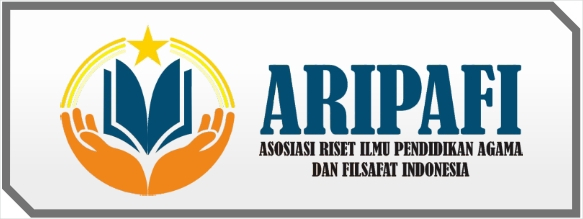Efektivitas Metode Think-Talk-Write Dalam PAK Terhadap Bernalar Kritis Fase F
DOI:
https://doi.org/10.55606/sinarkasih.v1i3.185Keywords:
Critical Thinking, Think-Talk-Write Method, Learning Outcomes.Abstract
The lack of enthusiasm of students at SMK Theresiana in PAK learning is caused by several factors, namely the religious diversity of students but they still have a sense of tolerance and consider religious learning as historical learning & adding insight, besides the use of textual lecture and discussion methods In order to ensure that students remain passive during the learning process. To overcome these problems, research was conducted using the Think-Talk-Write learning model. In this research endeavor, the primary objective revolves around assessing the efficacy of the Think-Talk-Write instructional approach, with students' critical reasoning skills on students' learning achievement. In this study using quantitative experimental methods with a pre-experimental approach was undertaken, employing a one-group pretest-posttest design.. In this research, a sole experimental cohort comprising 32 students was utilized, namely class XI TF 3. Data processing uses regression tests and N-Gain tests At a significance threshold of 5%, the outcome holds weight. Upon examination, it became evident that the implementation of the Think-Talk-Write educational approach resulted in a substantial 75% impact on the enhancement of critical thinking abilities, and the effectiveness level of 68% was still included in the moderately effective category. And the average value of learning achievement is 84 which exceeds the expected achievement value of 75. Conclusion: Introducing the transformative impact of the Think-Talk-Write educational approach, which significantly enhances one's critical thinking abilities. and learning achievement as evidenced by exceeding the KKM score. Suggestion: the Think-Talk-Write learning model can be developed again with various learning media assistance so that it can be more effective for learning.
References
Adnyana, S. K. I. (2022). Mewujudkan Profil Pelajar Pancasila Melalui Pembelajaran Bahasa & Sastra. Education.
Ahmadi, F. (2022). Merdeka Belajar VS Literasi Digital. Penerbit Cahya Ghani Recovery.
Artayasa, P. I., Fitriani, T., Handayani, S. B., & Kusmiyati. (2021). Efektivitas Penerapan Model Pembelajaran Think-Talk-Write (TTW) Secara Online Terhadap Literasi Informasi Siswa SMA. Jurnal Kependidikan, 7. https://e-journal.undikma.ac.id/index.php/jurnalkependidikan/index
Hapsan, A. (2021). Strategi Think Talk Write Dalam Pembelajaran Matematika. CV. AA. RIZKY.
Hartutik. (2018). Management Model for Integrating Character Education Training in School Learning with the Spiral System. Knowledge E, 2019. https://doi.org/https://doi.org/10.18502/kss.v3i18.4702
Khoirurrijal, Fadriati, Sofia, & Anisa. (2022). Pengembangan Kurikulum Merdeka. CV.Literasi Nusantara Abadi.
Muflihah, A. (2021). Meningkatkan Motivasi dan Hasil Belajar Siswa Melalui Model Pembelajaran Index Card Match Pada Pembelajaran Matematika. Jurnal Pendidikan Indonesia, 2. https://media.neliti.com/media/publications/339550-meningkatkan-motivasi-dan-hasil-belajar-c98b602b.pdf
Muhsyanur. (2020). Pemodelan Dalam Pembelajaran Mendesain Pembelajaran menjadi Berkarakter dan Berkualitas. Forum Silaturahmi Doktor Indonesia. https://books.google.co.id/books?id=Bz-HEAAAQBAJ&newbks=0&printsec=frontcover&pg=PA154&dq=huinker&hl=id&source=newbks_fb&redir_esc=y#v=onepage&q=huinker&f=false
Nurjaman, A. (2020). Peningkatan Kemampuan Berpikir Kristis dalam Pembelajaran Pendidikan Agama Islam Melalui Implementasi Desain Pembelajaran “Assure” (1sted.).CV.AdanuAbimata.https://www.google.co.id/books/edition/Peningkatan_Kemampuan_Berpikir_Kritis_Da/OXYTEAAAQBAJ?hl=id&gbpv=1&dq=kemampuan+berpikir+kritis&printsec=frontcover
Nurjanah, & Marlianingsih, N. (2015). Analisis Butir Soal Pilihan Ganda Dari Aspek Kebahasaan. Jurnal Ilmu Pendidikan, 2. https://journal.lppmunindra.ac.id/index.php/Faktor/article/download/377/359
Sembiring, K., Simorangkir Argareta Marta, F., & Anzelina, D. (2021). Pembelajaran Think-Talk-Write (TTW) Untuk Meningkatkan Komunikasi Matematik dan Sikap Positif Siswa (T. Lestari (ed.)). CV.Jakad Media Publishing. https://www.google.co.id/books/edition/Model_pembelajaran_kooperatif_TTW_think/VH1OEAAAQBAJ?hl=id&gbpv=1&dq=metode+think+talk+write&pg=PA33&printsec=frontcover
Sukestiyarno. (2021). Metode Penelitian Pendidikan (3rd ed.). Alem Print.
Suparno, J. (2020). Pendidikan & Politik (1st ed.). CV.Pustaka Abadi. https://www.google.co.id/books/edition/Pendidikan_dan_Politik/-Zz-DwAAQBAJ?hl=id&gbpv=1&dq=Kelemahan+metode+think+talk+write&pg=PA94&printsec=frontcover
Tulen, C., Relmasira C., S., & Hardini A. Tyas, A. (2019). Penerapan Model TTW (Think,Talk,Write) untuk Meningkatkan Hasil Belajar dan Berfikir Kritis Siswa Kelas IV SD. Education, 3, 8. https://www.jptam.org/index.php/jptam/article/view/298/276
Downloads
Published
How to Cite
Issue
Section
License
Copyright (c) 2023 Sinar Kasih: Jurnal Pendidikan Agama dan Filsafat

This work is licensed under a Creative Commons Attribution-ShareAlike 4.0 International License.


















